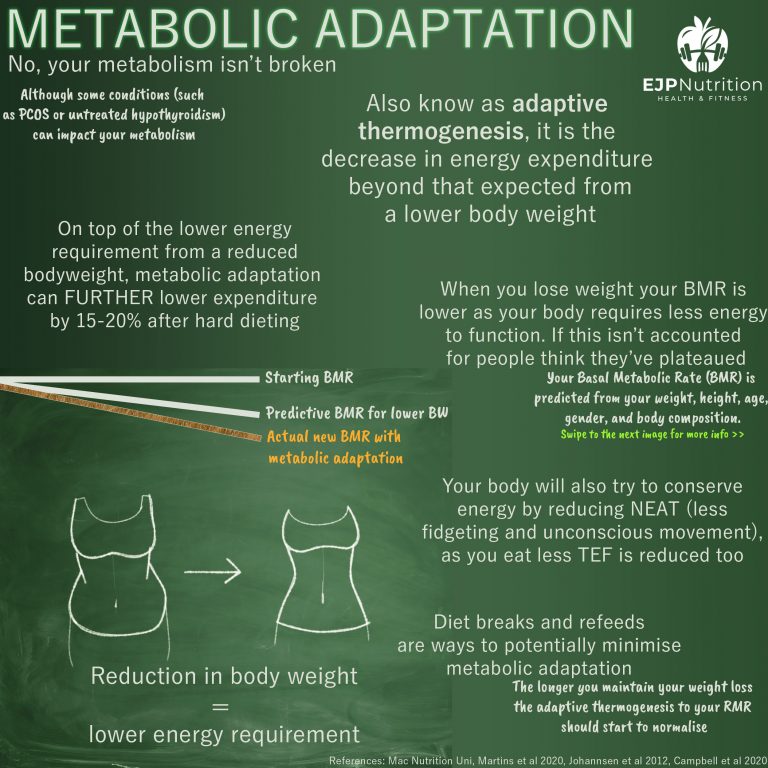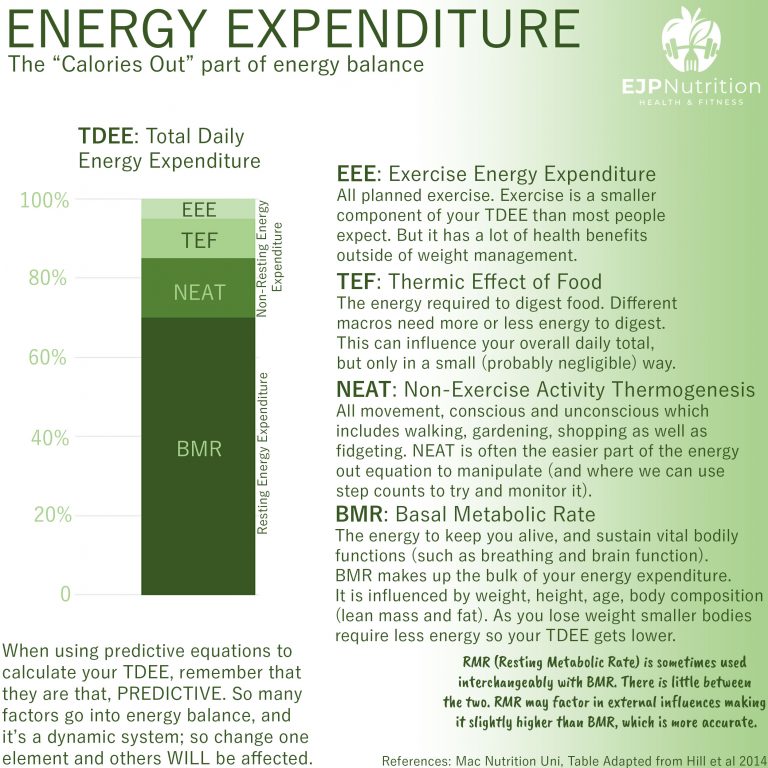Also known as adaptive thermogenesis. This is when you lose weight & your metabolism drops to a lower rate than expected. It’s normal when dieting for your metabolism to slow down. So don’t worry when it does. However it is something to take into consideration, & why people can think they’ve hit a plateau.
When you lose weight your body tries to slow the process down & conserve as much energy as it can (thank evolution for this!). You experience decreased satiety (feeling full), a reduction in NEAT (less movement, fidgeting) & higher levels of hunger. Your body also becomes more efficient. So tasks that took more energy now take less to reduce your expenditure.
All of these changes add up, so what you think is an energy deficit becomes maintenance, or even a surplus. Studies looking at this found that RMR significantly declined out of proportion with the decrease in body mass. Metabolic adaptation can be as much as 15-20% following hard dieting. If you think that is on top of your lower body weight reducing your BMR & other decreases in NREE it can mean your net energy expenditure is much lower than you’d expect.
It’s an interesting topic. A recent webinar from Dr Bill Campbell went into this in great detail, and how we can try and minimise it. Diet breaks & refeeds are options. There isn’t a huge amount of research as it’s still quite a new area. Dr Campbell’s own study showed how diet breaks potentially help retain more LBM; so you’re losing more fat. While RMR for the group with diet breaks was slightly better maintained.
It’s been proposed that metabolic adaptation is one reason why people are not able to maintain their weight loss. A recent study looked at this & found that metabolic adaption was present 4 weeks after their weight loss period. But not at either the 1 or 2 year follow ups.
From that my takeaway is to have a plan for weight maintenance after you’ve spent time dieting. Weight regain is often from returning to previous habits, so look at where you can make sustainable changes. Also when you are finding it harder to diet, then it may be better to have a break anyway. For both physiological & psychological reasons.
References: Mac Nutrition Uni, Martins et al 2020, Campbell et al 2020, Johannsen et al 2012
(Reposted from Instagram)



